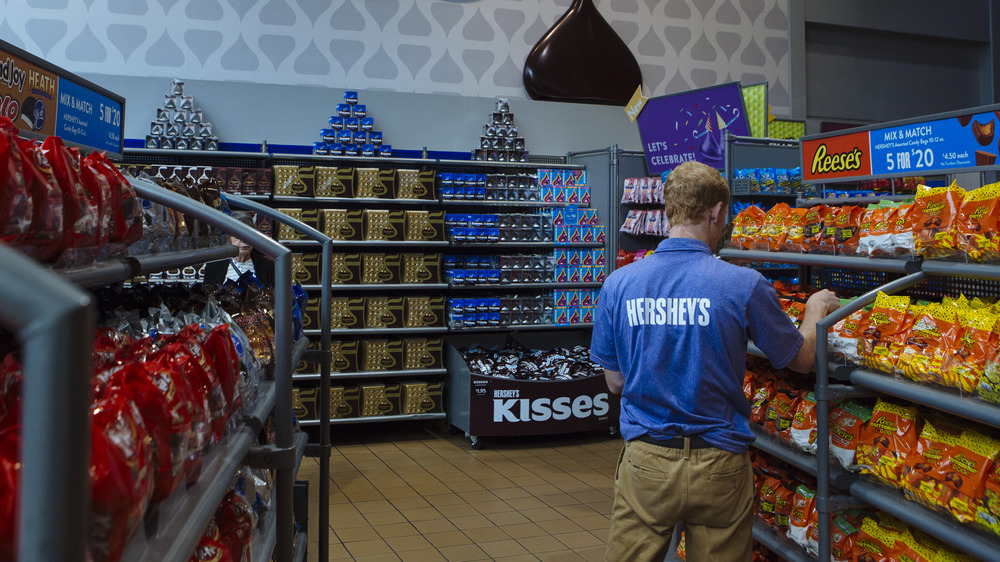Why Hershey's Is Releasing So Much 'Healthy' Chocolate
There are few things that can unite the world in general, and Americans in particular, like chocolate. The Chocolate Store says the U.S. population chows down on 2.8 billion pounds of chocolate a year, which averages out to more than 11 pounds per person. And the United States makes the most chocolate of any nation on Earth.
Our love of chocolate doesn't just have to do with the way it tastes; it also has links to the way we feel. The right kind of chocolate — and by that, scientists are referring to dark chocolate — is packed with antioxidants like flavanoids and flavanols, which can help protect against aging and factors that contribute to diseases like cancer.
But there are negative effects that come with eating plenty of chocolate, too — and those are primarily caused by the stuff manufacturers add into candy, which includes sugar, full-fat cream, and milk. By way of example, Medical News Today, which looked at the pluses and minuses of chocolate, points out that a regular bar of Hershey's milk chocolate has 13 grams of fat, 24 grams of sugar, and 210 calories, which can trigger negative side effects on our bodies that chocolates are meant to counter, from hypertension to diabetes and heart disease.
So this is where Hershey wants to step in.
Hershey wants to expand its "better-for-you" lines
Hershey says data shows that says the "better-for-you" section of candies and confection as a whole make up just six percent of total chocolate and candy sales across the country. And even at that level, a tiny part of the industry — which covers candy, mint, and gum — is valued at $1.3 billion dollars a year. So if candy manufacturers doubled down and offered more "healthy alternatives" to existing candy options, they could be looking at sales of more than $4 billion; this, in turn, would give Hershey's a revenue stream that could contribute between $500 million to $1 billion.
To date, most of Hershey's better-for-you offers have covered making portions smaller. But the company is now looking to do more. "People are still going to eat a Reese's Cup — we know that. People are still going to choose Reese's Eggs at Easter — we know that," Kristen Riggs, the company's chief growth officer tells Food Dive. "But if we have solutions like Zero Sugar Reese's, Thin Reese's, Organic Reese's — then all of a sudden we start to meet a broader set of needs."
This might sound like the best part: Hershey wants to find ways to cut the amount of sugar it uses in its product range and rebrand its "no-sugar" options as a "sugar-free" line. We know it may still take some time for these new products to hit our store shelves — but just a note to Hershey: we're waiting.

